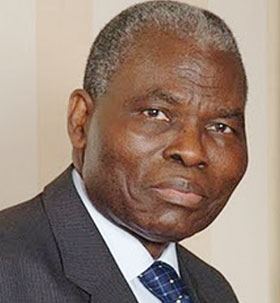MTN, Glo, Etisalat and Airtel May Face more Punitive Fines – Minister
The Federal Government may levy more fines against telecommunications companies if their service hasn’t improved by the time service quality checks are made in December, Communications Technology Minister Omobola Johnson said.
The telecommunications regulator fined companies including MTN Group Ltd. (MTN) andEmirates Telecommunications Corp. (ETISALAT) a combined 1.17 billion naira ($7.4 million) in May for failing to meet minimum service standards. Nigeria, Africa’s most populous country with more than 160 million people, is targeting voice penetration of close to 100 percent by 2014-2015.
“Fining isn’t something we want to do every six months, so we’re working very closely with them,” Johnson said in a Nov. 26 interview in the southern city of Warri. “Many of the companies don’t want to get fined again, but if they do not meet those quality of service indicators, they will get fined,” the minister said, adding that most customers say the service hasn’t improved.
The Nigerian Communications Commission fined South Africa- based MTN and Abu Dhabi-based Emirates, or Etisalat, 360 million naira each for failing to meet the service standards. New Delhi- based Bharti Airtel Ltd. (BHARTI) was fined 270 million naira and domestic operator Globacom Ltd. 180 million naira.
The regulator threatened last year to stop operators from signing new customers unless they reduced the number of dropped calls and improved connections. MTN and Etisalat cited lack of power and sabotage as reasons for the poor service.
Power Cuts
While the companies need to increase their spending on infrastructure, the ministry is trying to “remove a lot of delays and bureaucratic bottlenecks that are in their way,” Johnson said. Power cuts are a daily occurrence in Nigeria, where demand for electricity is almost double the supply of about 4,000 megawatts.
MTN is investing $1.4 billion in Nigeria this year to improve infrastructure and capacity. Etisalat said after it was fined in May that it will spend more than $500 million on its network.
The ministry has banned some sales promotions, including lotteries for free minutes, because they added pressure to the system, Johnson said.
If the necessary infrastructure is put in place, voice penetration should reach almost 100 percent by 2014 – 2015, compared with about 70 percent now, she said. Data penetration should reach 30 percent by 2017 from 6 percent now.
Stock Exchange
Nigeria wants international companies operating in the country to list on the Nigerian Stock Exchange “to democratize the wealth and the revenue that they’ve generated in Nigeria,” Johnson said. While none of the main four telecommunications operators are listed on the exchange, the authorities have stopped short of compulsory listing “because that will be seen as targeting telecommunications companies, and really and truly, it wasn’t a requirement or a condition for when they were investing, particularly the international ones,” she said.
The government should encourage companies to list by standardizing regulatory requirements with global exchanges and removing barriers, the minister said.
“We’re looking at a lot of things that detract or discourage investors including some of the shareholder activism that we’ve seen in the recent past, again managing that much better than we’ve done,” she said.
Source: Bloomberg









